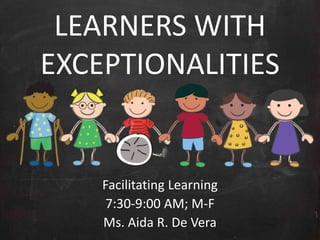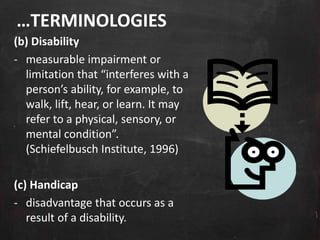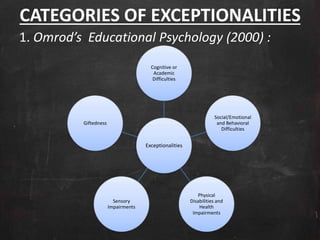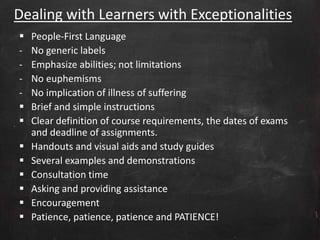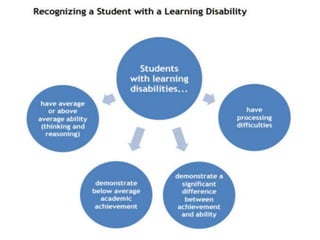This document discusses terminology and categories related to learners with exceptionalities. It defines key terms from the World Health Organization like impairment, disability, and handicap. It also outlines categories of exceptionalities including cognitive/academic difficulties, social/emotional/behavioral difficulties, physical disabilities, sensory impairments, and giftedness. Specific conditions are described within each category like dyslexia, ADHD, autism, and visual impairments. Approaches for supporting learners with exceptionalities are also mentioned such as people-first language, instructional accommodations, consultation, encouragement, and patience.
